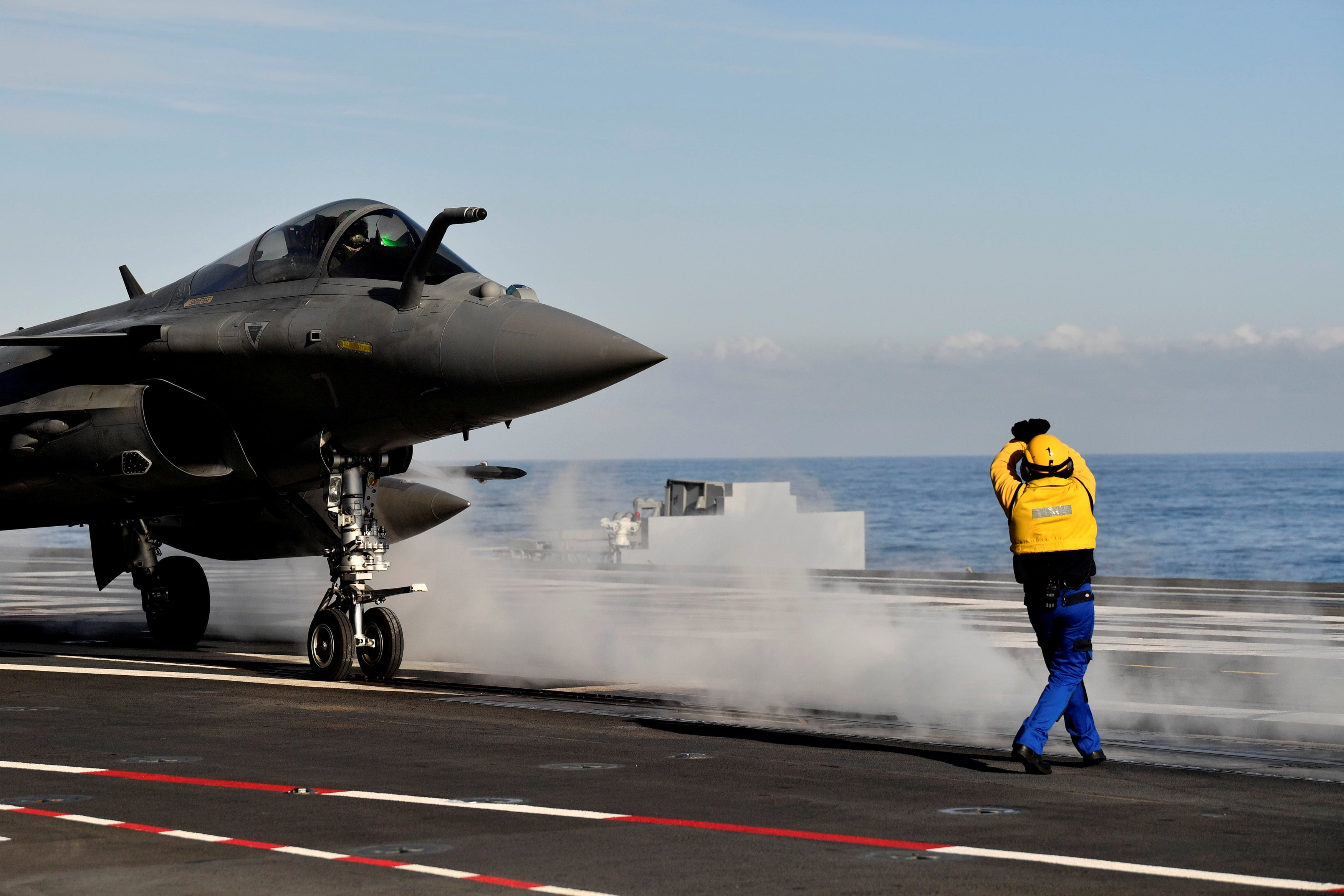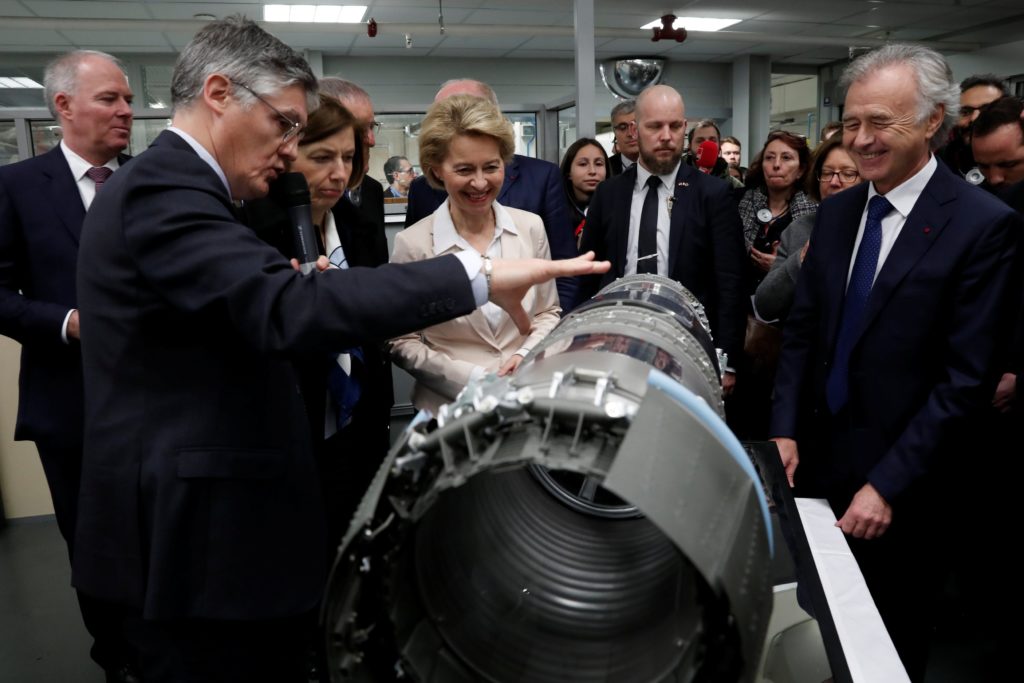France, Germany announce first deals for future warplanes
 A French fighter jet Rafale prepares to take off on the aircraft carrier “Charles de Gaulle”, after the completion of its 18 month-long renovation in Toulon, France, November 8, 2018. (Photo: Reuters/ File Photo)
A French fighter jet Rafale prepares to take off on the aircraft carrier “Charles de Gaulle”, after the completion of its 18 month-long renovation in Toulon, France, November 8, 2018. (Photo: Reuters/ File Photo) PARIS – France and Germany have announced a 65 million euro (A$104 million) contract financed equally by both countries over two years as the first act of the joint program to design a next-generation combat jet system.
Dassault Aviation and Airbus will build the system which is expected to be operational from 2040 with a view to replacing over time Dassault’s Rafale and Germany’s Eurofighters.
“This contract is entrusted to Airbus and Dassault who are the prime contractors of this ambitious system,” French Armed Forces Minister Florence Parly said in a speech alongside her German counterpart Ursula von der Leyen.
“This contract is the very first brick of a stupendous building.”
The French and German governments awarded the companies involved additional contracts to advance technologies and work to have the first demonstrators flights by 2025.
French President Emmanuel Macron and German Chancellor Angela Merkel first announced plans in July 2017 for the new Future Combat Air System (FCAS), which will include a fighter jet and a range of associated weapons, including drones.
After nearly two years of preparatory work by the companies involved, Wednesday’s agreements and contract signing will pave the way for the program to begin in earnest.
The initial contracts will run for two years.
France’s Safran and Germany’s MTU Aero Engines will jointly develop the new warplane’s engine, Safran said in a statement.

Florence Parly, French Minister of the Armed Forces and German Minister of Defence Ursula von der Leyen visit aircraft engine maker’s Safran site with Safran Chief Executive Philippe Petitcolin ahead of the signing of the first contracts for joint multi-billion euros programme to develop a next-generation combat jet in Gennevilliers, France, February 6, 2019. (Photo: Reuters)
Parly and Von der Leyen announced the deal at a Safran site in northeastern Paris, where representatives of the two companies signed a memorandum of understanding.
Von der Leyen confirmed that Spain was due to join the project in the summer.
“We’re working on it. We have a plan within the coming weeks and months to have Spain join,” she said.
French electronics firm Thales and European missile maker MBDA will also participate in the project.
Germany removed a key obstacle to progress on the project last week when it bowed to French demands and excluded Lockheed Martin’s F-35 stealth fighter from a multibillion-euro tender to replace ageing Tornado fighter jets that are fitted to carry US nuclear weapons.
Paris, Germany’s closest European partner, had warned that buying the F-35 in particular would derail plans to develop the new Franco-German fighter by 2040 since it would constitute a potential competitor to that project.
Britain, which is due to exit the European Union in March, unveiled its own rival aircraft development program, dubbed Tempest, at the Farnborough Air Show in July.
European military and industry executives say they believe the two programs could and should eventually be merged given the need to compete internationally and the many billions of euros needed to develop a new combat aircraft.
A French army source said Paris and Berlin were open to more European partners joining the program.
Reuters


